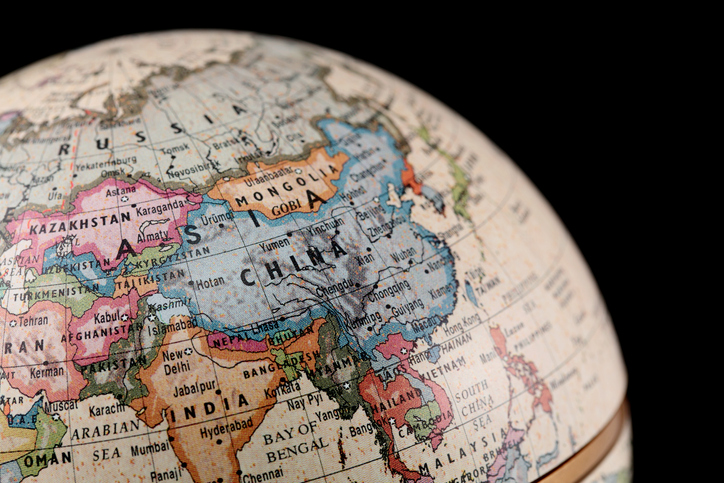Is this country hurting or helping your emerging market ETF?
Two of the most popular emerging market ETFs do not always produce the same returns. Tom Bailey explains.
13th January 2021 11:55
by Tom Bailey from interactive investor
Two of the most popular emerging market ETFs do not always produce the same returns. Tom Bailey explains.

Different index providers use different methodologies, criteria and definitions. As a result, there is always some difference between indices ostensibly tracking the same market or asset class.
One of the most significant is the difference between the MSCI Emerging Market index and the FTSE Emerging index. The MSCI classifies South Korea as an emerging market, while FTSE does not.
This is significant, as the MSCI Emerging Market index has a weighting of almost 14% in South Korean equities, while the FTSE Emerging index has none. As a result, the performance of Korean equities can have a significant impact on the relative performance of each indices.
This difference is given even more significance due to the fact that BlackRock uses the MSCI index and Vanguard uses the FTSE index for their respective emerging market ETFs. For example, there is the Vanguard FTSE Emerging Markets ETF GBP (LSE:VFEM) and the iShares MSCI EM ETF GBP (LSE:IEEM).
BlackRock and Vanguard are the two most popular ETF providers. Therefore, many investors in emerging market ETFs are likely to face the dilemma of opting for BlackRock and having Korean equities in their emerging market fund, or choosing Vanguard and not having Korean equities.
- The cheapest ETFs to track global markets at the start of 2021
- Three reasons not to use the Dow Jones index
- Diversifying your portfolio is easy with these ii Super 60 recommended funds
This choice entails investors having to make a decision based on whether they think Korean equities will perform better or worse than Chinese, Indian, Taiwanese or Brazilian equities, among others. That is not an easy call to make. For investors who have opted for ETFs to take a more passive approach to investing, it is not a choice they are likely to welcome.
One of the best arguments for keeping Korean equities out of the emerging index comes from John Welling of S&P Global Indices, an index provider that classifies South Korea as a developed market.
Welling argues that large Korean companies derive much of their revenue from developed markets. He notes: “Viewed through the lens of company revenues on a geographic basis, the largest South Korean companies overwhelmingly gain revenues from developed economies.”
A key example of this is Samsung Electronics (LSE:SMSN), one of South Korea’s largest companies and a top five member of the MSCI Emerging Market index. Welling notes that the company derives almost 60% of its revenue from developed markets.
In contrast, the largest companies in other emerging markets derive nearly all their revenue from other emerging markets. Welling argues: “Therefore, the inclusion of South Korea in an emerging markets index leads to less underlying economic exposure to typically faster-growing emerging economies.”
- The best ETFs to access China’s exciting tech industry
- Tom Bailey Column: Dax 30 rule changes get only two cheers
- Take control of your retirement planning with our award-winning, low-cost Self-Invested Personal Pension (SIPP)
While Samsung and other Korean companies may be great stocks to own, they are fundamentally different to most other emerging market stocks. These differences in index composition gives the investor exposure to different economic trends.
But it is also the case that South Korean equities have done very well lately, with the country being the top-performing major market in 2020. As a result, the index with Korean equities has done better. Over the course of 2020, the MSCI Emerging Market index provided a return of 14.7%, while the FTSE Emerging Index returned 11.6%. That is a difference in performance of 3.1%, so it is not insignificant.
Over a long period of time, the MSCI Emerging Market index has performed better. Between January 2016 and January 2021, the MSCI Emerging Market index returned 119.8%, while the FTSE Emerging index returned 113.6%.
So, while Korean equities may have provided an exposure different to what was necessarily wanted or expected, you are unlikely to hear any investors in iShares MSCI EM ETF complaining. The different type of exposure provided by Korean equities was actually something to be welcomed in recent years.
Whether this trend will continue, however, is unknowable. There is no right or wrong answer to the question of whether an investor should opt for an emerging market ETF that includes Korean equites – except, of course, in hindsight.
Full performance can be found on the company or index summary page on the interactive investor website. Simply click on the company's or index name highlighted in the article.
These articles are provided for information purposes only. Occasionally, an opinion about whether to buy or sell a specific investment may be provided by third parties. The content is not intended to be a personal recommendation to buy or sell any financial instrument or product, or to adopt any investment strategy as it is not provided based on an assessment of your investing knowledge and experience, your financial situation or your investment objectives. The value of your investments, and the income derived from them, may go down as well as up. You may not get back all the money that you invest. The investments referred to in this article may not be suitable for all investors, and if in doubt, an investor should seek advice from a qualified investment adviser.
Full performance can be found on the company or index summary page on the interactive investor website. Simply click on the company's or index name highlighted in the article.